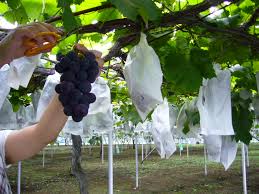The New Zealand Government has announced its support for the Next Generation Viticulture programme, a world-leading initiative aimed at increasing vineyard productivity and boosting the wine industry's profitability. Agriculture Minister Todd McClay unveiled the plan, which is projected to inject an additional $295 million into the economy by 2045.
The programme will transform traditional vineyard systems, increasing profitability by an estimated $22,060 per hectare by 2045 while preserving the quality of New Zealand’s renowned wines. The government has been co-investing $5.6 million over seven years, in partnership with New Zealand Winegrowers Incorporated and several vineyards, to implement innovative canopy management systems.
"This initiative ensures New Zealand’s wine industry remains a global leader in both quality and sustainability," McClay stated. "We are providing the sector with tools to enhance productivity and long-term profitability."
Inspired by the success seen in the Kiwifruit and Apple industries, the programme will introduce new growing configurations that allow vines to intercept more sunlight, driving higher yields.
Seven vineyards, in collaboration with the Bragato Research Institute, will trial the programme, which aims to set a new benchmark for the industry. "It's a great example of how the Government and industry can work together to achieve lasting economic benefits," McClay said.











